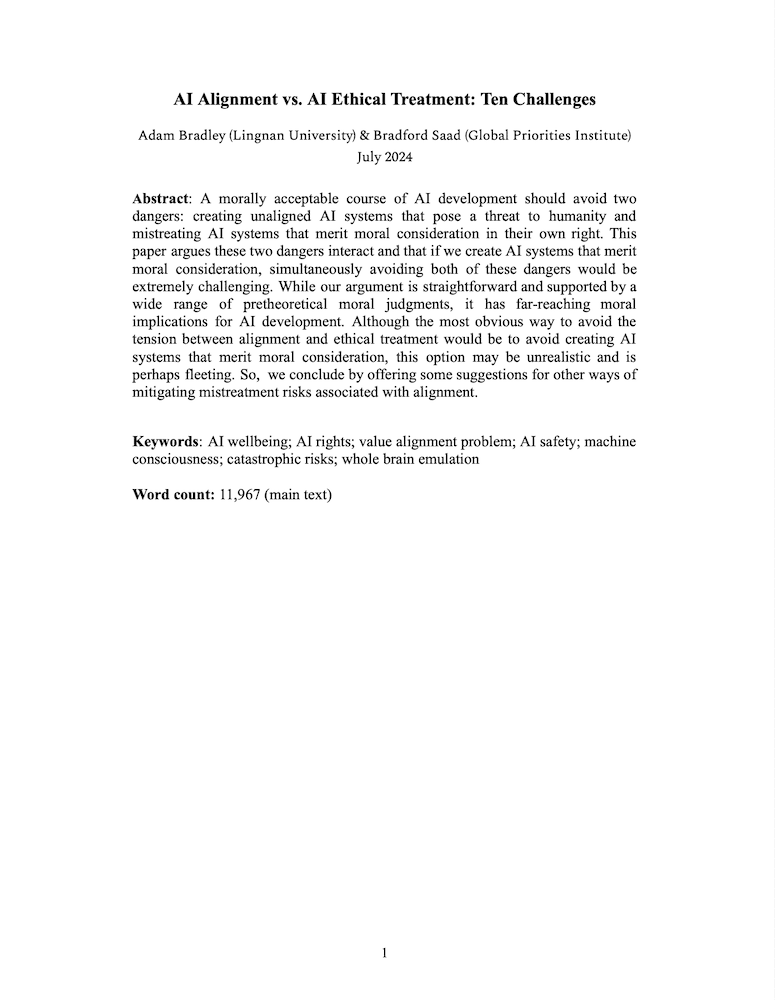AI alignment vs AI ethical treatment: Ten challenges
Adam Bradley (Lingnan University) and Bradford Saad (Global Priorities Institute, University of Oxford)
GPI Working Paper No. 19-2024
A morally acceptable course of AI development should avoid two dangers: creating unaligned AI systems that pose a threat to humanity and mistreating AI systems that merit moral consideration in their own right. This paper argues these two dangers interact and that if we create AI systems that merit moral consideration, simultaneously avoiding both of these dangers would be extremely challenging. While our argument is straightforward and supported by a wide range of pretheoretical moral judgments, it has far-reaching moral implications for AI development. Although the most obvious way to avoid the tension between alignment and ethical treatment would be to avoid creating AI systems that merit moral consideration, this option may be unrealistic and is perhaps fleeting. So, we conclude by offering some suggestions for other ways of mitigating mistreatment risks associated with alignment.
Other working papers
The scope of longtermism – David Thorstad (Global Priorities Institute, University of Oxford)
Longtermism holds roughly that in many decision situations, the best thing we can do is what is best for the long-term future. The scope question for longtermism asks: how large is the class of decision situations for which longtermism holds? Although longtermism was initially developed to describe the situation of…
AI takeover and human disempowerment – Adam Bales (Global Priorities Institute, University of Oxford)
Some take seriously the possibility of AI takeover, where AI systems seize power in a way that leads to human disempowerment. Assessing the likelihood of takeover requires answering empirical questions about the future of AI technologies and the context in which AI will operate. In many cases, philosophers are poorly placed to answer these questions. However, some prior questions are more amenable to philosophical techniques. What does it mean to speak of AI empowerment and human disempowerment? …
Minimal and Expansive Longtermism – Hilary Greaves (University of Oxford) and Christian Tarsney (Population Wellbeing Initiative, University of Texas at Austin)
The standard case for longtermism focuses on a small set of risks to the far future, and argues that in a small set of choice situations, the present marginal value of mitigating those risks is very great. But many longtermists are attracted to, and many critics of longtermism worried by, a farther-reaching form of longtermism. According to this farther-reaching form, there are many ways of improving the far future, which determine the value of our options in all or nearly all choice situations…

